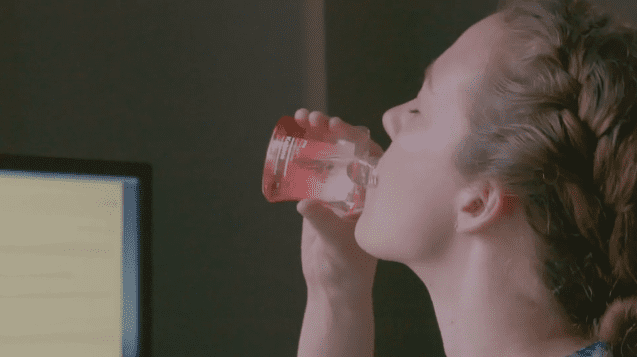Once the stuff of sci-fi, biohacking has become reality. In an increasingly competitive society, students and professionals alike are taking drugs to make them faster, smarter and stronger. Toronto-based director Ann Shin explores this phenomenon in her new documentary, Smart Drugs, airing next week.
Smart Drugs looks at the controversial industry of biohacking and cognitive-enhancement supplements otherwise known as “smart drugs” or “nootropics.” It follows Futurist Nik Badminton as he travels from Silicon Valley to Toronto and Vancouver to meet the entrepreneurs, doctors and biohackers behind the movement, all the while pushing his mind and body to the limits for the promise of a smarter and more productive life.
We asked Ann about the film this week.
SDTC: What drew you to this topic initially?
AS: Co-producer Melanie Horkan and I were astonished to discover that a high percentage of university students (25-30%) and white-collar professionals like programmers and surgeons regularly use cognitive-enhancement drugs. They take pills like Modafinil and Adderall to help them focus and work longer.
We wanted to take a close look at why this was happening. That led us into the whole world of bio-hacking, where people try everything from drugs, eugeroics or aphetamines, to herbal supplements, to hyperbaric oxygen therapy or transcranial direct-current stimulation to up their brain game.
Did you try any of these so-called smart drugs?
I hate popping pills, but I tried Modafinil and found I was definitely more focused and efficient. I didn’t stick with it because it kept me awake for too long. I have an art director friend who stacked different kinds of cognitive-enhancement drugs, and it enabled him to be the most creative and productive he’s ever been. The closest I’ve gotten to that is using herbal “brain stack” supplements and vitamin B complexes. I’m also interested in the wearable tech that’s coming out—headsets that claim to help you meditate, or get “in the flow.”
What should we be concerned about when it comes to taking these substances to enhance our performance?
I would be wary because many of these drugs don’t have long-term studies regarding use. What are the long-term effects on your mind and body? The other thing about smart drugs is that a surprising number were developed by the military. Eugeroics like Modafinil and amphetamines have been used by fighter pilots and soldiers alike to keep alert for long missions. Some of these amphetamines are known to increase aggression and decrease empathy. The world needs more empathy and less aggression! I’d hate to think people are taking drugs to feel smarter and instead are contributing to a more aggro society.

Director Ann Shin
What does it say about our society when we feel we need to take drugs to get ahead in life?
I think the idea of “upgrading” our brains is deeply problematic and stems from society trying to keep up with its own technological advances. We as a society feel the pressure to keep up with our ever-more-clever machines. We think our brains should be upgraded the way we upgrade our iOS or dos systems. It’s a dehumanized view of intelligence that could invite a reckless approach to tinkering with our minds and bodies.
What is the most problematic aspect of the smart drugs phenomenon for you personally?
What I find interesting about the bio-hacking mentality is the openness to experimentation and being an early adopter of the latest new drug or therapy. I like the curiosity. But how many know the side effects or long-term effects of these drugs? I’m concerned about drugs and treatments that are seen as shortcuts to better performance.
It’s also concerning to think about whether we are moving towards a society where more and more people are enhanced through drugs, biotech or human-computer interfaces. If that is to be the new norm, what happens to the people who are not enhanced? Yuval Harari talks about a future where we could see three classes of people: the augmented digirati, the un-augmented humans who are the lower middle class, and those who live in digital darkness. The imperative will be to become augmented to stay ahead.
What do you hope viewers will take away from this film?
I hope they’re surprised by the ingenuity that’s happening in the field of bio-hacking. And I hope they’re also concerned about the number of people taking smart drugs. I hope it makes them question the value of enhancing our cognition. I hope they also really question what is sacrosanct to human life and that they share that with those around them and make their position known socially. Maybe there could be a counter bio-hacking movement. I bet within the next few years there will be a kind of “back to Eden” anti-bio-hacking movement.



 Follow Us On Instagram
Follow Us On Instagram
